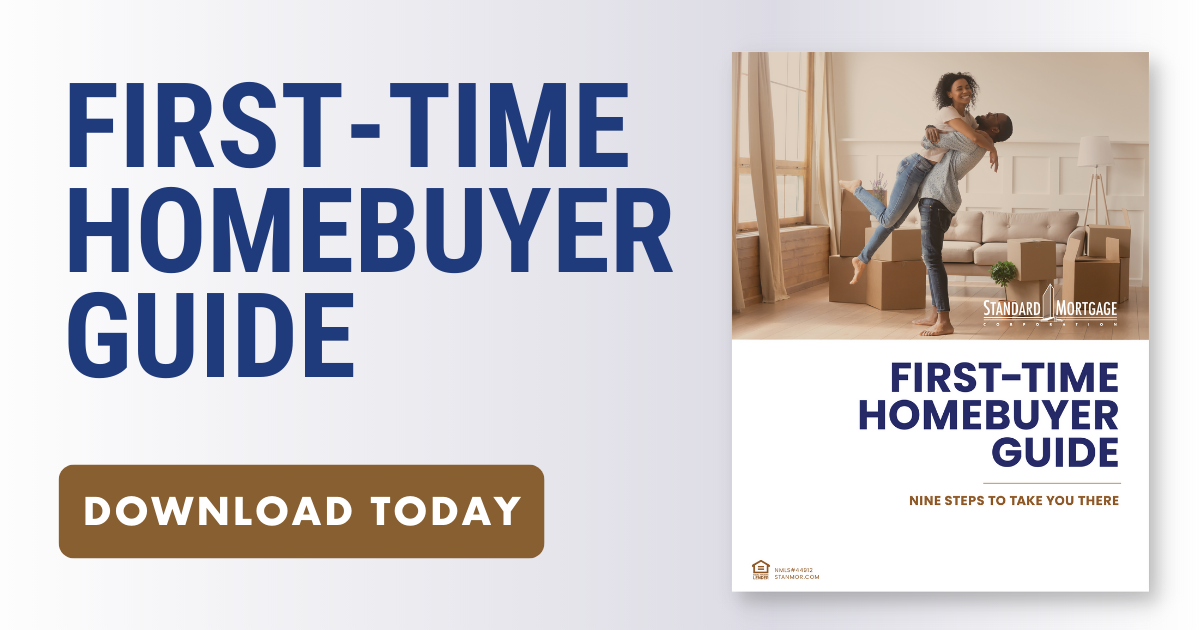Adjustable Rate Mortgages (ARM)
An adjustable rate mortgage (ARM) is a mortgage product where your interest rate may change at specified intervals over the life of the loan based on a predetermined index and margin.
When it comes to buying a home, there are many different ways to finance your purchase. The type of property you’d like to purchase, the amount of money you have to put down, your credit score, and income all play critical factors in deciding what mortgage will work the best for you. For many Americans an FHA (Federal Housing Administration) loan is an affordable and accessible choice. An FHA mortgage is a government backed loan sponsored by the Federal Housing Administration. Here is everything you need to know about FHA loans.
FHA mortgages are loans guaranteed by the Federal Housing Administration, or FHA. This loan type is designed to provide affordable mortgage loans to homebuyers. These loans are often a good fit for for first-time, or lower income home buyers. Easier credit guidelines and down payment requirements offer wider access. However, it’s important to know that you don’t have to be a first-time home buyer in order to leverage the benefits of an FHA loan.
In order to qualify for an FHA loan, you must minimally meet a set of requirements, which include:
Down payments are an important consideration when it comes to purchasing a home. The amount of money you are able to pay for your down payment may drastically change your interest rate and subsequent monthly payments. Few mortgage programs have minimum down payments lower that 5%, an FHA is one of them. If your credit score is over 640 you only need to put down 3.5%.
In order to qualify for an FHA mortgage with Standard Mortgage you will need a minimum credit score of at least 640. A higher score will offer better interest rates and down payment requirements. However, this low threshold allows you to start the home buying process sooner if there are some credit issues you are working on.
To offset a lower credit score, you may have mortgage insurance premiums associated with your loan. FHA loans require two types of mortgage insurance payments. The first is an upfront mortgage insurance premium (UFMIP) equal to 1.75% of the loan amount. This is either paid when you close your loan or rolled up into the loan amount and paid each month. The type of mortgage insurance is a monthly mortgage insurance premium paid as a part of your regular mortgage payments (MIP).
FHA allows your down payment to be comprised of 100% gifted funds. This means that money gifted from the borrower’s family members can be applied towards your down payment. If you are getting gifted funds for your down payment, contact your loan officer to ensure you follow the appropriate process to receive these gift funds.
Your debt-to-income ratio is calculated by comparing your before-tax income to your obligations, or debt payments. An FHA loan allows for a higher DTI ratio than many other mortgage programs. Your housing ratio should not exceed 31%. This ratio includes the principal, interest, taxes, insurance, and housing HOA dues. Furthermore, your total monthly debt payment should not exceed 43%. This ratio includes your total mortgage payment as stated above plus any auto or bank loans, credit card debt etc.
When it comes to buying a home, there are many different ways to finance your purchase. The type of property you’d like to purchase, the amount of money you have to put down, your credit score, and income all play critical factors in deciding what mortgage will work the best for you. For many Americans an FHA (Federal Housing Administration) loan is an affordable and accessible choice. An FHA mortgage is a government backed loan sponsored by the Federal Housing Administration. Here is everything you need to know about FHA loans.
FHA mortgages are loans guaranteed by the Federal Housing Administration, or FHA. This loan type is designed to provide affordable mortgage loans to homebuyers. These loans are often a good fit for for first-time, or lower income home buyers. Easier credit guidelines and down payment requirements offer wider access. However, it’s important to know that you don’t have to be a first-time home buyer in order to leverage the benefits of an FHA loan.
In order to qualify for an FHA loan, you must minimally meet a set of requirements, which include:
Down payments are an important consideration when it comes to purchasing a home. The amount of money you are able to pay for your down payment may drastically change your interest rate and subsequent monthly payments. Few mortgage programs have minimum down payments lower that 5%, an FHA is one of them. If your credit score is over 640 you only need to put down 3.5%.
In order to qualify for an FHA mortgage with Standard Mortgage you will need a minimum credit score of at least 640. A higher score will offer better interest rates and down payment requirements. However, this low threshold allows you to start the home buying process sooner if there are some credit issues you are working on.
To offset a lower credit score, you may have mortgage insurance premiums associated with your loan. FHA loans require two types of mortgage insurance payments. The first is an upfront mortgage insurance premium (UFMIP) equal to 1.75% of the loan amount. This is either paid when you close your loan or rolled up into the loan amount and paid each month. The type of mortgage insurance is a monthly mortgage insurance premium paid as a part of your regular mortgage payments (MIP).
FHA allows your down payment to be comprised of 100% gifted funds. This means that money gifted from the borrower’s family members can be applied towards your down payment. If you are getting gifted funds for your down payment, contact your loan officer to ensure you follow the appropriate process to receive these gift funds.
Your debt-to-income ratio is calculated by comparing your before-tax income to your obligations, or debt payments. An FHA loan allows for a higher DTI ratio than many other mortgage programs. Your housing ratio should not exceed 31%. This ratio includes the principal, interest, taxes, insurance, and housing HOA dues. Furthermore, your total monthly debt payment should not exceed 43%. This ratio includes your total mortgage payment as stated above plus any auto or bank loans, credit card debt etc.
Every homebuyer has unique needs. Standard Mortgage strives to meet them with quality service and individual attention. We pride ourselves in giving you the mortgage information, loan options, and convenient assistance you’re looking for, including what to expect when you apply for a mortgage loan. With a variety of loan programs and an established network of lenders behind us, we help you find the loan that best suits your needs and at a competitive rate.
An adjustable rate mortgage (ARM) is a mortgage product where your interest rate may change at specified intervals over the life of the loan based on a predetermined index and margin.
A conventional loan must meet nationally standardized guidelines, such as income, credit, and property requirements. These mortgages are subject to loan limits set by the Federal Housing Finance Agency.
The Federal Housing Administration (FHA) - commonly referred to as HUD - issues loans that provide affordable mortgages to the average homebuyer.
A fixed-rate mortgage is the most common type of mortgage product. Your monthly interest and principal payments do not change over the life of the loan.
A jumbo loan, or non-conforming mortgage, is for homebuyers who expect to borrow more than $647,200* for single-family residences.
*this loan amount may vary based on geographic location
A USDA Rural Development loan helps rural home buyers purchase a home with no down payment, low fixed rates, simple credit requirements, and the guarantee of the federal government.
Veterans Administration loans help veterans — including active duty service personnel and certain categories of spouses — finance the purchase of their homes with favorable loan terms.
Standard Mortgage is here to help you navigate the daunting, complicated process that lies ahead. In this eBook, we'll walk through the steps you'll have to take before you hold the keys to your new home.

The team at Standard mortgage has developed additional and related content centered around FHA loans.

What is the difference between working with a local mortgage lender?
Learn More
Copyright 2026, Standard Mortgage Corporation | All Rights Reserved

NMLS #44912